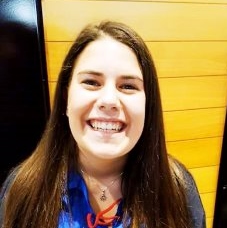click to dowload our latest edition
CLICK HERE TO SUBSCRIBE TO OUR NEWSLETTER


Published
7 years agoon
By
adminMOIRA SCHNEIDER
The King David Victory Park learner was initially not too keen on the Diller programme, but is now part of a group of 38 grade 11 Johannesburgers and Capetonians who have just left to participate in a three-week seminar in Israel. They will be joined by Fellows from around the world for the culmination of their year-long leadership training.
Sher was hooked into the programme “just by meeting different people (through the interview process) and engaging with different ideologies within Judaism, like left-wing, right-wing”.
The water project showed Sher she was capable of having an impact on society, with Diller Johannesburg co-ordinator Gilad Spitalnik “smoothing out the rough edges”.
Sher says: “I’m very interested in people, I want to take what I learn about how to interact with humanity and try and leave a legacy. I want to be that person who makes a difference somehow in the world.”
An admirable goal indeed. But what is it that makes a leader and how are the Fellows selected?
“One of the most important things about being a leader is that you’ve got to care about whatever it is that you’re involved in – generally it is people,” says Spitalnik. “There needs to be integrity – leading is generally done by example, not by word.
“A leader is not necessarily a head of a country, a community, or an organisation, but someone who has a responsibility to other people,” he posits.
Another important characteristic, he says, is that leaders at certain times have to follow, to be able to step back and allow someone who has more knowledge in a particular area, to play a role.
The process of selecting the Teens is not through a standard interview, rather a workshop simulation of four hours’ duration, being very interactive with experiential-based learning.
“We give them an experience where they have to work together to achieve a certain outcome, with both group and individual targets. It’s what happens in between that counts,” he says, underlining the essential ability to work with others.
In trying to find the right people who will make Diller leaders, he says: “I’m looking for somebody who wants to make a difference in their community and is interested in learning.” He warns: “In the first hour the masks are down!”
It is not necessarily high-achieving academics or school leaders who get on to the programme, he adds. It all boils down to the question: “Which of you are willing to make that commitment to make a difference in your life and your communities – that’s what we are looking for.”
There are 32 communities on the programme worldwide, constituting a global network, with each having its own modus operandi in terms of training. Johannesburg, for instance, has four-hourly workshops bi-monthly throughout the year, plus three Shabbatons, two full-day seminars and two overnight workshops. Cape Town’s programme is similar.
Johannesburg has a partnership with a Diller region in Beth Shemesh Matei Yehudah, while Cape Town twins with one in Shoham, outside Tel Aviv. Those groups come to their partner cities here for 10 days to experience a Jewish community outside of Israel.
The Israel visit is not about touring, but rather “looking at Israel through the Diller lens,” says Spitalnik. “We engage with Israeli culture and life; for example, we had a session on Masada and the question was: ‘Are they heroes or cowards?’”
All the international Diller groups meet up at a Shabbaton there and examine issues such as: “What does it mean to be a Jew in the Diaspora today?” and “What does it mean to be a Jewish leader in the Diaspora?”
Once the Fellows return home, they implement a programme of change with their new skills, known as an Impact Project, not necessarily in the Jewish community.
Hannah-Rose Fleishman is an alumnus of the programme who now assists Cape Town co-ordinator Lee Lobel as a madrich. The Herzlia matriculant credits the “incredibly meaningful” Fellow experience with facilitating her engagement with others and particularly enabling her to accept and embrace a diversity of views.
“You learn so much from other people,” she reflects. “Moving from a Fellow to a madrich is like learning how to be a role model and have people look up to you and understanding all those responsibilities,” she adds.
“Also, it’s largely the same content, so a lot of the ideas that were brought up in our discussions last year, we can bring up this year and facilitate the conversation. It’s very beautiful to see the Fellows of this year going through some of the same processes that we went through last year.
“I think it’s really incredible how the course caters for and accepts everyone and enlightens everyone in some sort of way,” she says.
“We’re not looking for these perfect teenagers,” Lobel confirms, “because we want this to be a learning experience for the Teen. Over the year we look for things like whether they take initiative and meet deadlines, how they treat the people in the group and the staff,” highlighting the role of self-management in the training.”
Its success is evidenced by “very, very positive feedback” from parents and schools, comments Aviad Sela, director of the Israel Centre under whose auspices the Johannesburg programme operates. “Many of the Fellows have taken leadership positions in schools, in the city and in youth leadership outside the community as well.”
